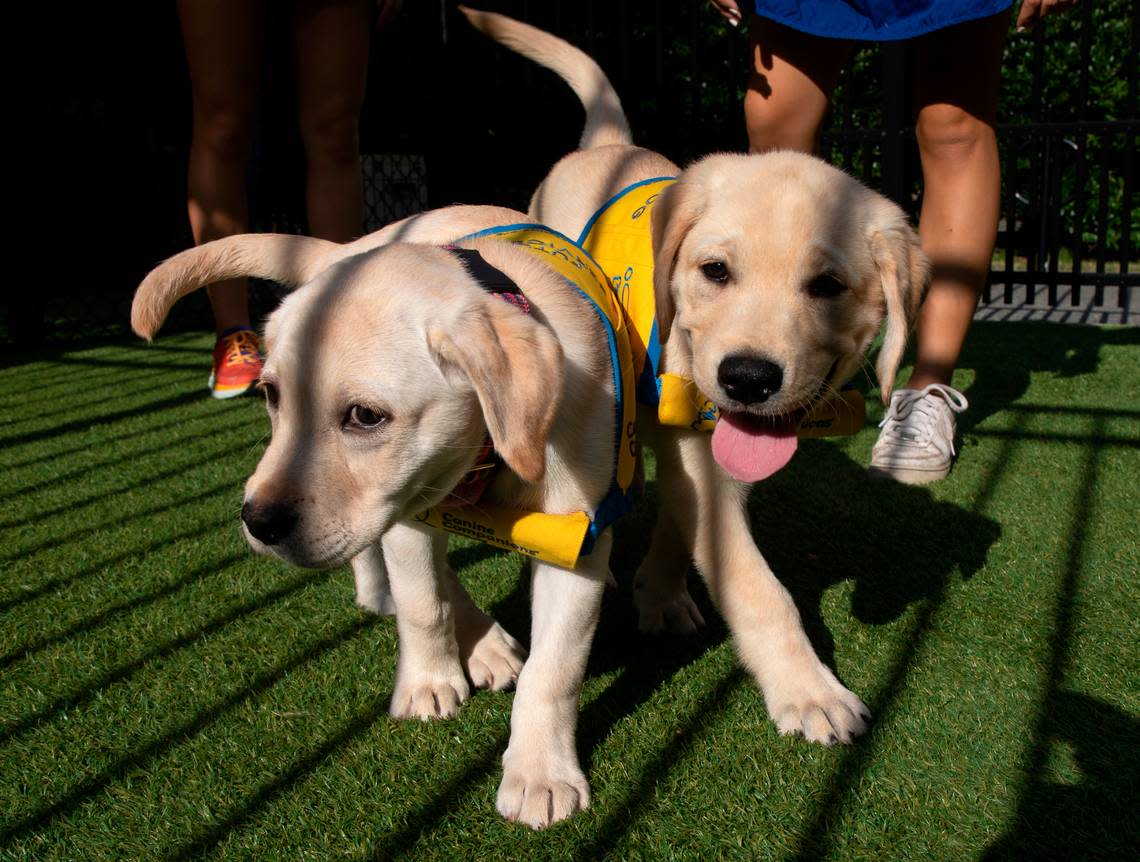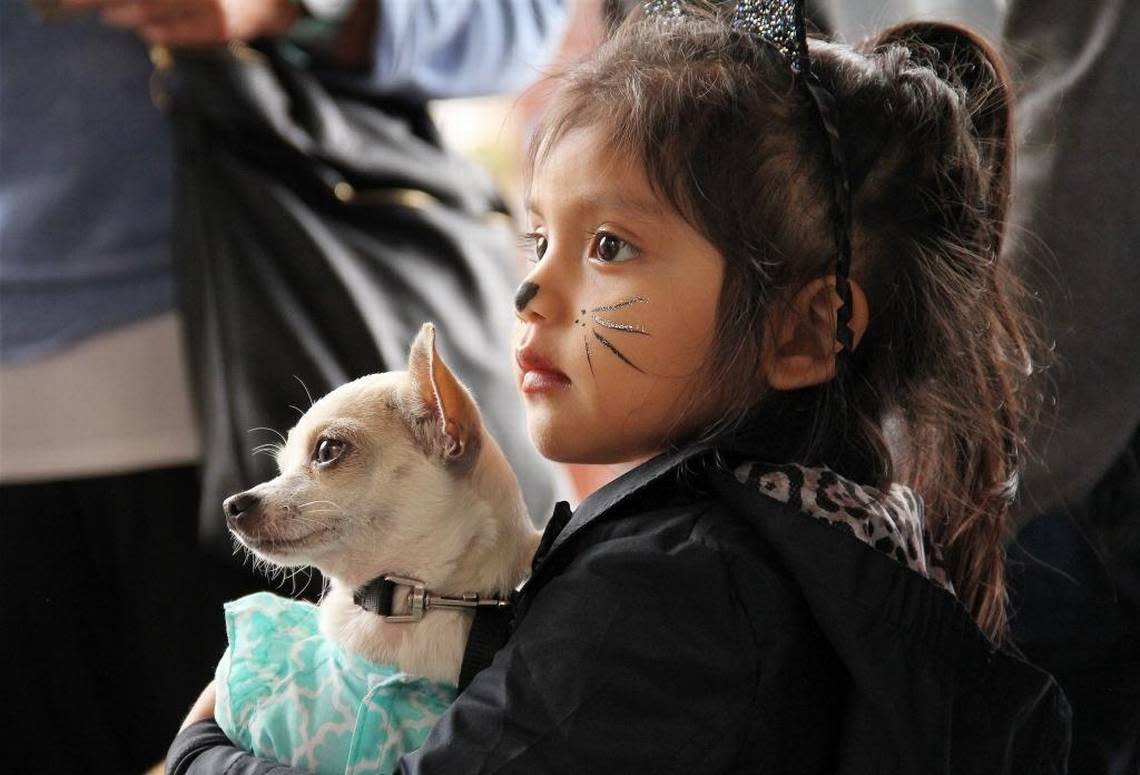The scoop on poop: Durham tightens rules for dog waste in neighborhoods and trails
Durham has new rules requiring pet waste bins in neighborhoods and along trails, getting homeowners associations involved in the push to get dog walkers to do their “doody.”
HOAs must install at least two pet waste bins in residential developments, and they’ll also be required along paved trails. For neighborhoods with more than 90 homes, a third bin is required.
City staff proposed the amendment to address pollution concerns, explained planning manager Jessica Dockery.
“Pet waste impacts our water quality,” Planning Commission Chair Austin Amandolia said during a March meeting. “Please deal with your pet waste. It’s not just a nuisance for people walking in the park. It actually impacts the water supply.”
The Planning Commission unanimously recommended the new rules, which don’t apply retroactively, in March. They sailed unanimously through the City Council and Board of County Commissioners in April.
“This is for new developments going forward. There is no mechanism to require those pet waste receptacles in previously approved subdivisions,” Dockery told the Planning Commission.

If raccoons can poop outside, why can’t dogs?
Is pet waste any worse than wildlife’s? Here’s how the environmental organization Leave No Trace explains it:
“Wild animals are consuming resources and nutrients from the ecosystem, and then promptly returning those same resources and nutrients,” Leave No Trace educators wrote. “When we start adding in nutrients from pet waste, the ecosystem balance is thrown out of equilibrium.”
Nutrients in dog poop can upset the balance of creeks and lakes, causing algae blooms and overgrowth of weeds.
Plus, the bacteria that help warm-blooded animals digest food — including E. coli — can be dangerous if ingested. The EPA warns against direct contact with waters contaminated by high concentrations of fecal coliform bacteria.

Leaving dog poop can cost you
In 2016, Durham County passed an ordinance requiring dog owners clean up after their animals, with fines ranging from $50 to $150.
The campaign for dog walkers to bring bags, scoop poop and throw it away even includes a hashtag — #DurhamDoodyPledge — though it’s been slow to catch on.
“Dog waste that isn’t picked up hurts us all. It does not sink into the ground. Pet waste left on streets, yards, and trails washes into storm drains or streams when it rains. This damages our local streams and rivers,” the city explains.
The primary watersheds of concern in Durham are Northeast Creek and Third Fork Creek, both given “D” grades for water quality last year by the city.
The two watersheds extend south of the Durham Freeway in the Fayetteville Street corridor to the southern county line, including the Forest Hills, Hope Valley and Parkwood neighborhoods as well as N.C. Central University and some of Research Triangle Park.
The Durham Report
Calling Bull City readers! We've launched The Durham Report, a free weekly digest of some of the top stories for and about Durham published in The News & Observer and The Herald-Sun. Get your newsletter delivered straight to your inbox every Thursday at 11 a.m. featuring links to stories by our local journalists. Sign up for our newsletter here. For even more Durham-focused news and conversation, join our Facebook group "The Story of my Street."
